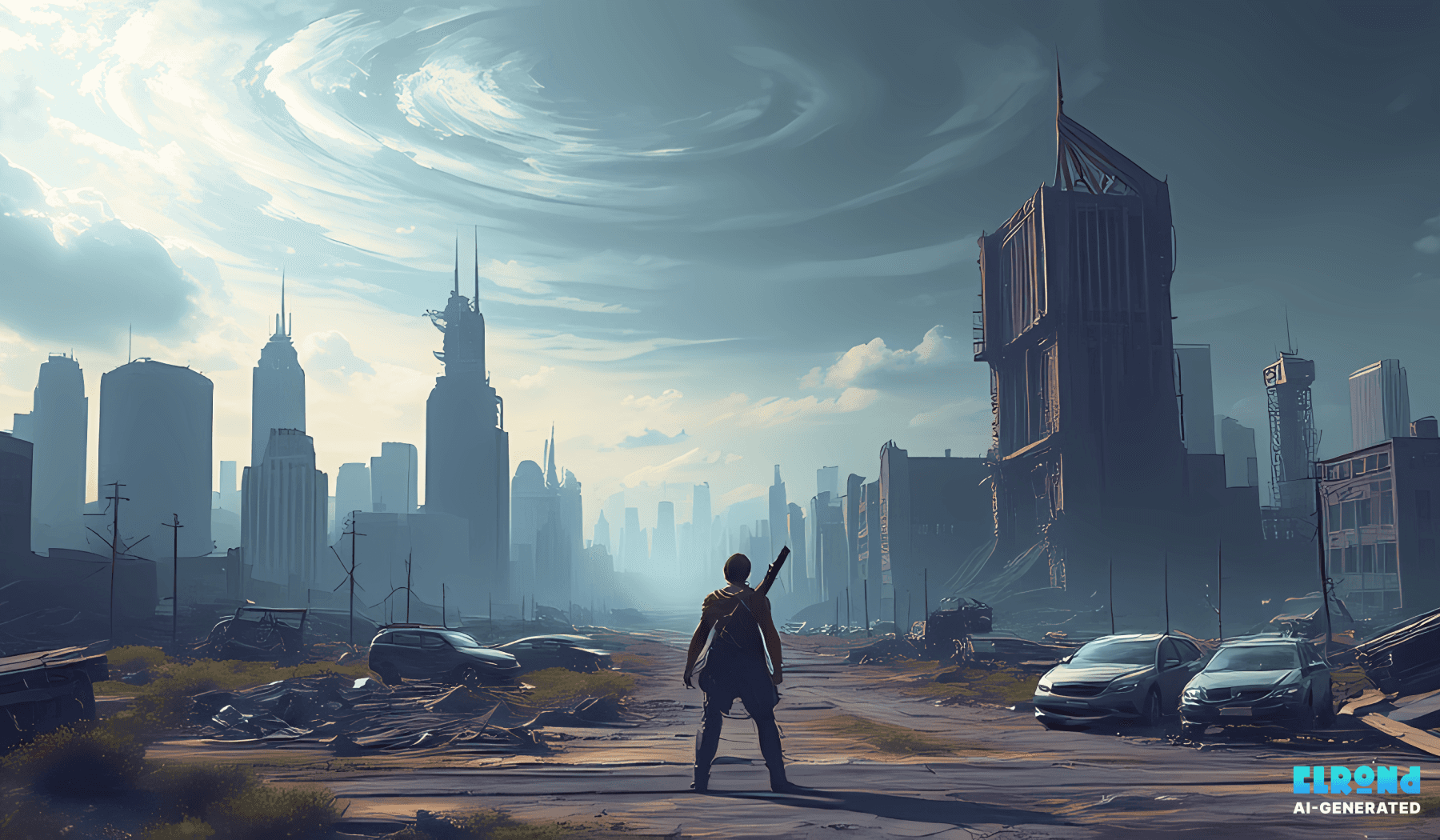Post-apocalyptic fiction explores survival in a shattered, dystopian world.
Post-apocalyptic literature often imagines a world after societal collapse, where civilization has crumbled, and the survivors must navigate a harsh and unforgiving landscape. These stories are not just about survival but also about the redefinition of human nature, the struggle for hope, and the reconstruction of identity in a shattered world. From nuclear fallout to zombie outbreaks, dystopian futures provide a stark reflection of the fragility of society and the resilience of the human spirit.
One of the most poignant examples of post-apocalyptic fiction is Cormac McCarthy’s The Road. The novel follows a father and his son as they journey through a barren, desolate landscape after an unspecified catastrophe that has wiped out most of humanity. McCarthy’s writing is spare and haunting, with a focus on the bleakness of the world and the bond between father and son. The novel's power lies in its exploration of the emotional and psychological toll of survival. The father’s love for his son and their mutual dependence on each other becomes the only light in a world devoid of hope. In many ways, The Road is not just a story of physical survival but of emotional endurance, showcasing how love and human connection can endure even in the darkest of circumstances.
In contrast, the Mad Max series, particularly Mad Max: Fury Road, presents a more action-packed version of the post-apocalyptic world, focusing on a relentless fight for resources in a desert wasteland. While McCarthy’s world is silent and introspective, Mad Max is loud, chaotic, and violent, portraying a world where the struggle for survival is brutal and often dehumanizing. However, beneath the action, the film is a meditation on the collapse of civilization and the loss of social order. The characters in Mad Max are not just fighting for survival but for redemption and meaning in a world where both have been lost.
Another notable work in the genre is The Walking Dead, both in comic book and television form. The series explores the breakdown of social order following a zombie apocalypse, but its focus is not on the zombies themselves but on the relationships between survivors and the moral dilemmas they face. The survivors are forced to confront questions of leadership, ethics, and what it means to remain human in a world that has lost its humanity. The portrayal of group dynamics and the internal conflict of characters, such as Rick Grimes, provide a deep psychological exploration of what it means to hold onto one's morals and humanity when society no longer enforces them.
The appeal of post-apocalyptic fiction lies not just in its dystopian setting but in its ability to examine the essence of what makes us human. The collapse of civilization forces characters to rediscover what is truly important—family, loyalty, survival, and morality. In works like Station Eleven by Emily St. John Mandel, we see the rebuilding of culture and art after a global pandemic, exploring how human creativity and connection persist even after society falls apart.
Post-apocalyptic fiction often taps into our deepest fears—the fear of losing everything we know, the fear of extinction, and the fear of being unable to adapt. Yet, it also offers a kind of solace. These stories show that even when everything else is gone, hope and the will to survive remain. As humanity faces global challenges such as climate change, pandemics, and political unrest, the themes of post-apocalyptic fiction resonate more than ever, reminding us of the resilience that lies within us, even in the face of utter destruction.
Ultimately, the genre offers a dual narrative: it is both a warning of what could happen if we don’t take care of the world we live in, and a celebration of human endurance, compassion, and the ability to rebuild after catastrophe. In exploring the shadows of dystopian futures, post-apocalyptic literature provides a space to reflect on the current state of our world and imagine the possibilities, both dark and hopeful, that the future may hold.


